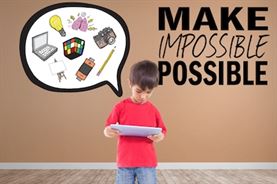
Understanding Intellectual Disability

Understanding Intellectual Disability
Intellectual disability affects millions of people worldwide, yet it remains one of the most misunderstood and stigmatised conditions. Despite efforts to raise awareness, misconceptions and myths persist, hindering the full inclusion and support of individuals with intellectual disabilities.
What is Intellectual Disability?
Intellectual disability is a developmental condition characterized by limitations in intellectual functioning and adaptive behaviour. These limitations manifest during childhood and impact an individual's everyday social and practical skills. Intellectual disability can vary in severity, ranging from mild to profound, and it affects people of all races, ethnicities, and socioeconomic backgrounds.
Intellectual disabilities (ID) affect millions of individuals worldwide, yet they remain widely misunderstood and stigmatized. It's crucial to raise awareness about ID, dispel common myths, and provide support to those living with these conditions. These disabilities can vary in severity and may result from genetic factors, prenatal exposure to toxins, complications during birth, or environmental influences.
Supporting a child with intellectual disability
Supporting a child with an intellectual disability requires patience, understanding, and a tailored approach to meet their individual needs. Here are some practical ways to provide support:
1. Early Intervention: Seek early intervention services to identify and address developmental delays as soon as possible. Early intervention programs provide therapies and support tailored to the child's specific needs, helping them reach their full potential.
2. Create a Structured Environment: Establish routines and structure to help the child feel secure and understand expectations. Consistency and predictability can reduce anxiety and promote learning.
3. Use Visual Aids: Visual aids such as pictures, charts, and schedules can help the child understand concepts, follow instructions, and communicate their needs more effectively.
4. Break Tasks into Manageable Steps: Break down tasks into smaller, manageable steps to make learning and completing tasks more achievable. Offer praise and encouragement for each step accomplished.
5. Provide Individualized Instruction: Adapt teaching methods to match the child's learning style and pace. Use hands-on activities, repetition, and multisensory approaches to reinforce learning.
6. Encourage Social Interaction: Facilitate opportunities for the child to interact with peers and develop social skills. Encourage inclusive play and guide social cues and appropriate behaviour.
7. Focus on Strengths: Identify and nurture the child's strengths and interests. Celebrate their achievements and help them build confidence in their abilities.
8. Promote Independence: Encourage the child to develop independence by teaching self-care skills, such as dressing, feeding, and personal hygiene. Offer support and guidance as needed, while fostering autonomy.
9. Communicate Effectively: Use clear and simple language when communicating with the child. Allow time for them to process information and respond, and be patient and supportive during interactions.
10. Collaborate with Professionals: Work closely with teachers, therapists, and other professionals involved in the child's care to develop a comprehensive support plan. Collaborate on goals and strategies to address academic, social, and emotional needs.
11. Provide Emotional Support: Offer reassurance, empathy, and understanding to the child during moments of frustration or difficulty. Validate their feelings and help them develop coping strategies to manage challenges.
12. Involve the Family: Engage the child's family members in the support process and encourage open communication. Collaborate on strategies for consistency and reinforcement across home and school environments.
Conclusion:
Intellectual disability awareness is essential for fostering inclusive and supportive communities where everyone is valued and respected. By debunking myths, promoting understanding, and providing meaningful support, we can create a more inclusive society where individuals with intellectual disabilities can thrive and fulfil their potential. Let us strive to build a world where everyone, regardless of ability, has the opportunity to live a fulfilling and meaningful life.
Articles
Build your awareness and get inspired with our researched articles on how you can strengthen your well-being
Popular Topics
An OTP has been sent to the email address
provided.
Please check your Inbox and Spam folders.

What Would You Like to Speak with a Specialist About?
Mental Fitness Journey starts Now!
Chearful Connects you with Top-tier Qualified Wellness specialists for the Price of a cup of Coffee!

Next Steps
- A Client Team member will reach out to you to schedule a session with the most suitable specialist.
- You will receive an email with a 10% Discount Code* for your 1st session.
- We invite you to Explore the Platform & Sign Up today! *Upto a maximum of $10 discount on a session purchased




 2224 Read
2224 Read
























